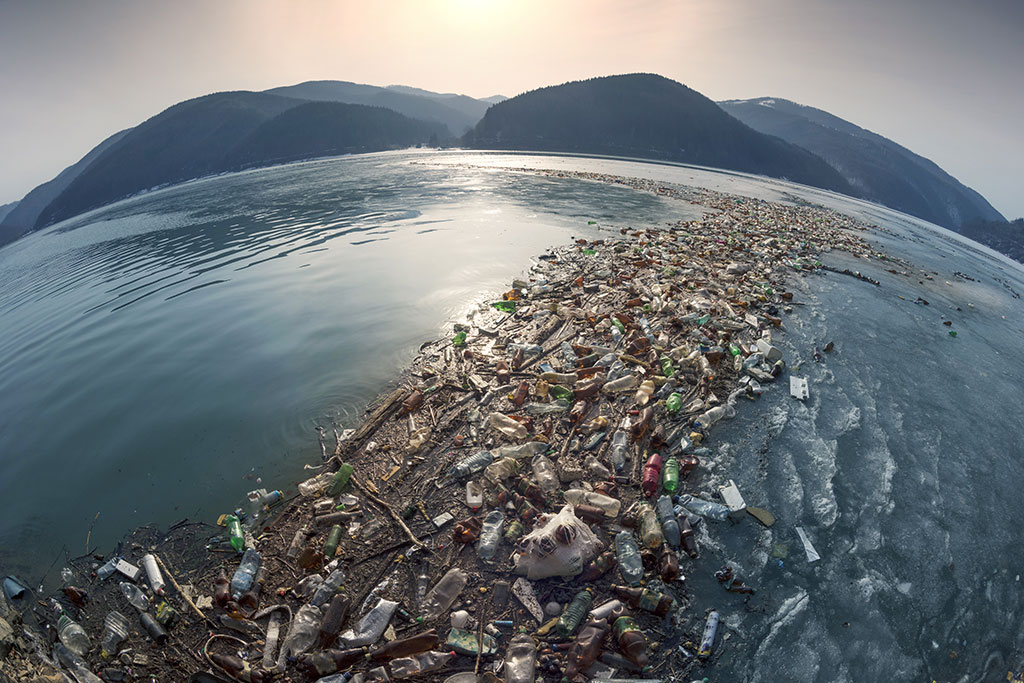
From the sea to the shop window or how to reuse the plastics that threaten marine life
Ever since plastics became part of our life making it easier and safer, recycling of the millions of objects and packagings manufactured with this material has become an increasing concern. Existing awareness of its detrimental effects on the environment has led authorities to limit the sale of bags in supermarkets or forbid the sale of plastic straws, plates and cups. Nevertheless, the COVID-19 outbreak has given rise to the abusive use of this material in hospitals, at home and in large shopping centres, as one of its major collateral damages.
Let us not forget that the greater amount of plastic circulating, the higher the probability some of it ends up polluting seas and oceans. The sight of enormous plastic islands formed by all types of waste grouped together due to ocean currents and large gyres is one of those images that create awareness of the seriousness of the situation. The largest garbage patch of the five existing is
located in the Pacific Ocean, between California and the Hawaiian Islands, and covers an area twice the size of France. Quantifying the number of marine species which die from eating plastics and microplastics is more complicated.
The extent of the problem has led many companies to manufacture products from recycled plastics they process themselves or in conjunction with NGOs and conservation organisations. The following are some examples of these initiatives seeking to help clean the seas.
Sportswear
Companies such as Ternua have a wide collection of warm clothes and technical wear manufactured with plastics from the sea and recycled fishing nets. The Commitment logo identifies the products manufactured with these materials.
Watch straps
Anglo-Swiss brand Christopher Ward sells watches you can buy with #tide straps manufactured with plastics recovered from the Andaman Sea, Gulf of Thailand. The objects recovered by the Moken ethnic group members are treated at the Swiss University of Applied Sciences. They undergo a carbon-free process resulting in the polyester fabric straps, which the brand´s most committed customers wear on their wrists.
Sunglasses
Anther widely used accessory which is not at odds with sustainability either. Sea2see, an Italian company based in Barcelona, turns fishing nets and ropes into a resistant material for manufacturing sunglasses. Fishing communities place abandoned nets, ropes and plastics in more than 100 containers distributed in 20 Spanish ports resulting in one tonne recycled every three days.
Backpacks
Ecoalf has also specialised in giving fishing nets and plastic bottles, among other objects, a second life. Nets are turned into nylon and containers into polyester fibre they use to manufacture their products. So far, they have recycled over 250 million bottles as part of their broader commitments which include treatment of tyres and coffee residues or opting for recycled wool as an alternative to the traditional one.


